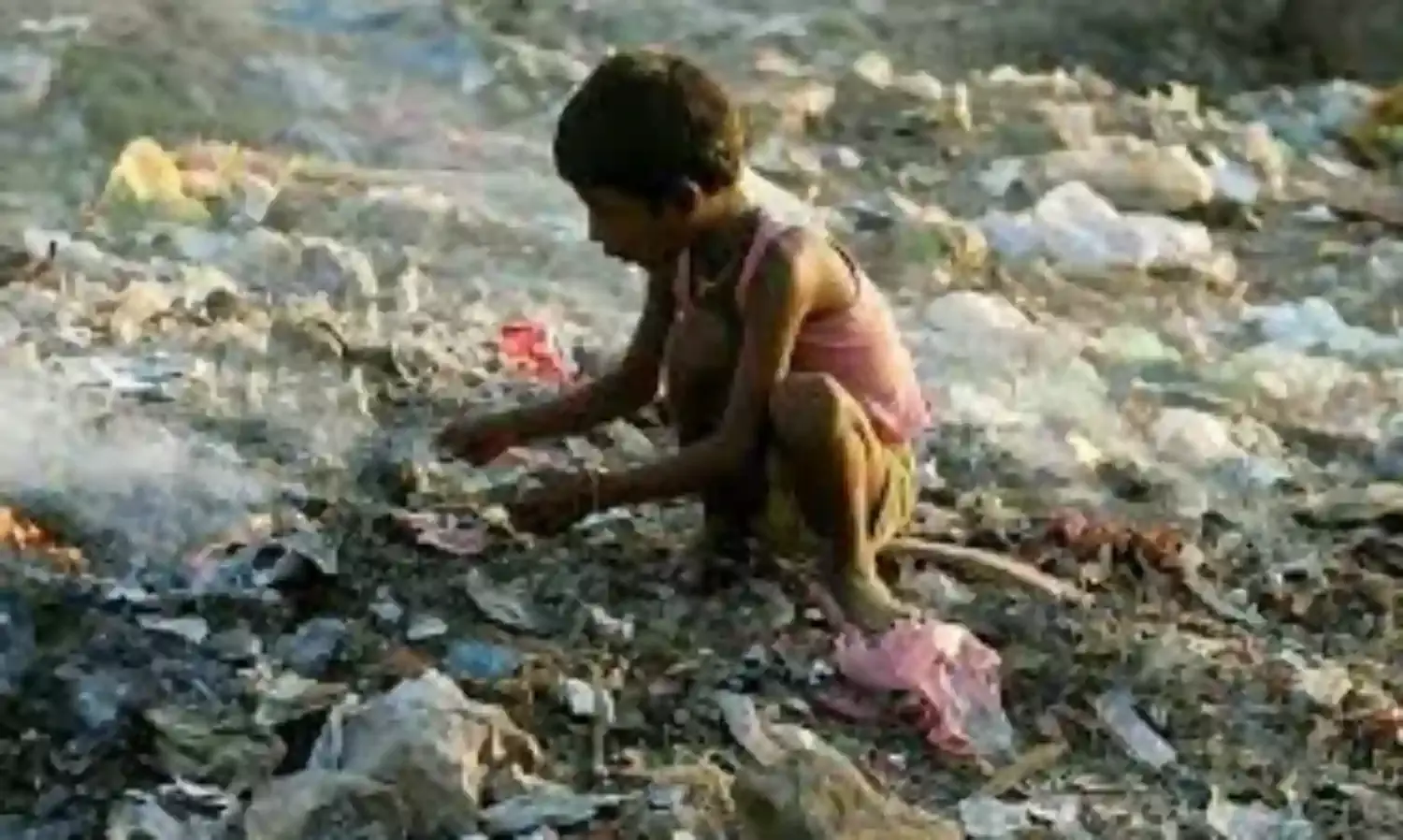HUNGER!
India 107 in 121 nations says GHI, New Delhi refutes

India has ranked 107 out of 121 countries in the recently released Global Hunger Index (GHI). It was earlier ranked 101. The GHI is a comprehensive measure of hunger based on key indicators such as undernourishment, child wasting, child stunting and child mortality. In this year's report, India had a score of 29.1, placing it in the 'serious' category of hunger.
While the report immediately raised alarm across the country, the centre dismissed the report, terming it an 'erroneous measure of hunger' and called it 'an attempt to taint India's image.
Responding to this, prominent food and trade policy analyst Devinder Sharma said, "It's very sad that there is a controversy about the authenticity of the report. The most important part is that the people who have done the report have followed the same formula for all countries. If our sample size is small, I'm sure the sample size of all the countries was small. If the method of measuring is common across the globe, it's time to take the report seriously and see why we have such a low ranking. Why are we not performing well? Child wasting, child stunting, all these things are listed there. We are not doing enough to eradicate hunger."
Further responding to claims that India has a food surplus, so much so that it was even able to donate food to countries like Sri Lanka, Sharma said, "If India has a food surplus, it is because we don't provide enough food for the poor. If 200 million people go to bed hungry, and if we were to see that every human gets food supply which goes by calorie requirement, then we will be falling short of food. We have built up a surplus because we have not been distributing it properly to the poor. That is why you have grains to export. There's no reason why India should be exporting food. A hungry nation has no business exporting food. It must first see that its own people are well-fed."
He added, "The report should be taken up as a challenge. In a democracy which has completed 75 years and if we are still at the bottom of the ranking, it tells us very clearly that our priority has not been to be inclusive. Inclusive means the benefits should be shared by everyone. But we're leaving the majority behind. When we talk about becoming a 5 trillion dollar economy, we should also accept that the economic gains have not been adequately distributed. If 200 million people still go to bed hungry, it is a big shame. We can't just brush it off saying the data is not correct. We should stop defending it. We are far behind."
Sharma proceeded to suggest that the only way to get rid of the hunger trap would be to launch a zero hunger programme. "Distribution of food has to be linked with certain economic activities to emerge from hunger. Even in the national food security act which caters to 67 percent of the population, the food supply should be linked to certain activities that people can do. For instance, in Brazil, when they procure food from farmers, every 20 kms, they have a market. The law states that whatever produce the farmers bring to the market, the state will buy it. In the bargain, you have to see that your children go to school. That is an excellent strategy. Similarly, with the national food security programme, we have to prepare it in such a manner that we can link it with the ability of the people to become self-reliant."
"Currently, the programme talks about giving a five kilo ration to everyone perpetually. It should instead be linked in such a manner that we can reduce the number of people who need it and have a target such that in the next few years, we can reach zero hunger levels. It should be a stimulus to the people and increase their ability to get out of the hunger trap," he added.
SS Sangwan, former General Manager, National Bank for Agriculture and Rural Development said, "We don't really have a food shortage, except for certain items like oil seeds. There's a lot of local production in states as well. But there could be limitations in the distribution."
In a webinar organised by the National Alliance of People's Movements on Addressing India's Food Security Challenges, Dr Veena Shatrughna, former Deputy Director, National Institution of Nutrition said, "After the denial of the ranking, it's obvious that the government does not like data or figures. The NNMP was closed down, other voices were being stifled. It's very important that we produce more data to actually bring out facts and figures of what's happening."
She added, "We are actually being pushed towards starvation because any data you can get your hands on, you find that cereal consumption is going up because people can't afford anything else. So you have people consuming half a kilo of cereal per day and then of course, it crashes because even that becomes unaffordable. The whole country is being pushed towards just cereal consumption. This is a dangerous sign. We need more data on what people are actually eating."
"In states where you have regional parties, maybe we should get them to promise something on food. The DMK in Tamil gets a lot of support because of its policies on food. NTR won because of his Rs 2 rice scheme. Food must be put centre stage as far as the elections are concerned, especially by the regional parties."



